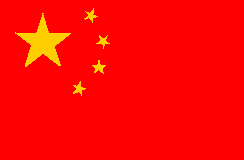
As demonstrations for universal suffrage and democracy continue in Hong Kong, China is clamping down on social media service Weibo. According to Weiboscope, a project of the University of Hong Kong that tracks censorship, 15 of every 1,000 posts on Weibo were being censored, five times the usual amount.
Some terms that were being censored: "Hong Kong police" and "#HongKong."
In addition, China blocked Instagram, the photo sharing site owned by Facebook, as well as news articles related to the Hong Kong protests. The major news outlets in China did not report the protests. Searches on Baidu and other Chinese search engines yielded no results relevant to the ongoing protests.